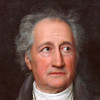“ Men, then, as well as beasts, suffer pain when they are angry, and are pleased when they exact their revenge; those who fight for these reasons, however, are pugnacious but not brave; for they do not act for honour's sake nor as the rule directs, but from strength of feeling; they have, however, something akin to courage. ”
Aristotle, Nicomachean Ethics (c. 334 BC - 330 BC). copy citation
| Author | Aristotle |
|---|---|
| Source | Nicomachean Ethics |
| Topic | revenge strength |
| Date | c. 334 BC - 330 BC |
| Language | English |
| Reference | |
| Note | Translated by W. D. Ross |
| Weblink | http://classics.mit.edu/Aristotle/nicomachaen.mb.txt |
Context
“(Those creatures are not brave, then, which are driven on to danger by pain or passion.) The 'courage' that is due to passion seems to be the most natural, and to be courage if choice and motive be added.
Men, then, as well as beasts, suffer pain when they are angry, and are pleased when they exact their revenge; those who fight for these reasons, however, are pugnacious but not brave; for they do not act for honour's sake nor as the rule directs, but from strength of feeling; they have, however, something akin to courage.
(4) Nor are sanguine people brave; for they are confident in danger only because they have conquered often and against many foes. Yet they closely resemble brave men, because both are confident; but brave men are confident for the reasons stated earlier, while these are so because they think they are the strongest and can suffer nothing.”
source



